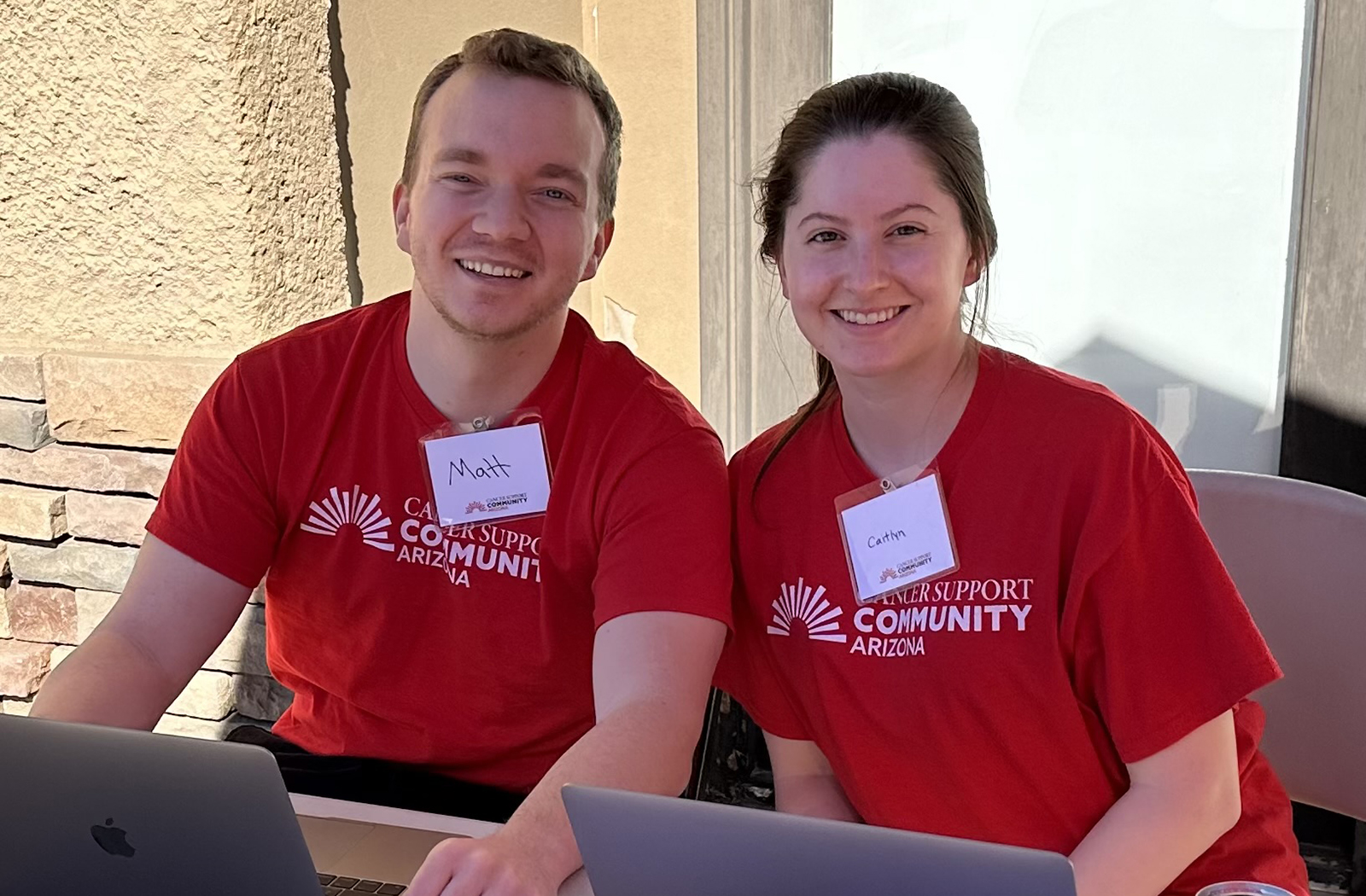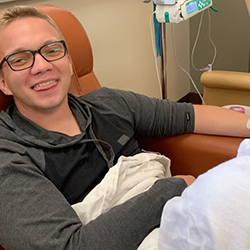
White Coat Profile: Matthew Steed

The White Coat Ceremony marks the first time a medical student will don his or her white coat, the defining symbol of a physician. The coat bestows a great honor on each student, and with it comes a responsibility to uphold the trust of every patient they will encounter. The Class of 2028 will receive their white coats on July 19 during a ceremony that begins at 3:30 p.m. in the West Ballroom of the Phoenix Convention Center downtown.
Meet Matthew Steed
Although he was born in Arizona, Matthew Steed’s family moved to Nebraska when he was two years old. His family relocated back to Kingman, Arizona, before he started high school.
After graduating high school, Steed earned two undergraduate degrees in chemistry and biomedical sciences from Northern Arizona University (NAU) in 2019.
During his junior year at NAU, Steed was diagnosed with stage 3 melanoma and underwent a year of treatment before being declared cancer-free in July 2019.

Among his other supporters, Steed credits his wife and his parents — who have supported him throughout his battle with cancer and in his journey toward medical school.
Path toward Medicine
What was the spark that led you to become a physician?
The spark that led me to want to become a physician was the conversations I had with my oncologist. He would ask not just how the medications were affecting me, but he would also asked how I was doing beyond this. His support and bedside manner inspired me to fully pursue a career as a physician.
Also, my wife is currently an M3 at Creighton, and her spark was related to her mom, who had battled breast cancer. Her mom's story was more of an inspiration to me.
Did you do any volunteering in health fields prior to medical school?
I did not have any medical volunteering experience prior to medical school, but I worked as a medical scribe for four years before getting accepted. Additionally, I volunteer extensively with Cancer Support Community – Arizona (CSC). In fact, I recently authored a byline for the Queen Creek Sun Times to promote the program, and I appeared on ABC 15 to encourage men to get regular cancer screenings for a segment on Men's Cancer Awareness Month.
I also spend a lot of time volunteering at various events with CSC and am the membership chair for their Young Professionals Council (YPC). We just finished up our major fundraising event for the year, so YPC is taking a brief pause during the summer until the weather cools off.
The College of Medicine – Phoenix
Why did you choose the College of Medicine – Phoenix?
I chose the University of Arizona College of Medicine – Phoenix because the community felt very welcoming, and, during the conversations I had with students, I got the impression that the students in the program were very content and happy.
What excites you most about beginning medical school?
The part of medical school I am most excited for is taking the knowledge I have accrued over the four years of working in a clinical setting and applying it to my own patients. I am excited to share my experiences with other patients to establish a deeper connection with them. I know the whole process is going to be stressful, but I feel I am ready for this.
Significance of the White Coat
What does the white coat mean to you?
The White Coat means so much to me. It's symbolic in that it represents the first step in the medical school journey. It is a responsibility to take this honor seriously. I will literally be in charge of people's lives, but I understand that I still have so much to learn from everyone else who is sharing this responsibility alongside me.
I have been dreaming of my White Coat Ceremony for so long, and I still can't quite believe that it is really happening!
About the College
Founded in 2007, the University of Arizona College of Medicine – Phoenix inspires and trains exemplary physicians, scientists and leaders to advance its core missions in education, research, clinical care and service to communities across Arizona. The college’s strength lies in our collaborations and partnerships with clinical affiliates, community organizations and industry sponsors. With our primary affiliate, Banner Health, we are recognized as the premier academic medical center in Phoenix. As an anchor institution of the Phoenix Bioscience Core, the college is home to signature research programs in neurosciences, cardiopulmonary diseases, immunology, informatics and metabolism. These focus areas uniquely position us to drive biomedical research and bolster economic development in the region.
As an urban institution with strong roots in rural and tribal health, the college has graduated more than 1,000 physicians and matriculates 130 students each year. Greater than 60% of matriculating students are from Arizona and many continue training at our GME sponsored residency programs, ultimately pursuing local academic and community-based opportunities. While our traditional four-year program continues to thrive, we will launch our recently approved accelerated three-year medical student curriculum with exclusive focus on primary care. This program is designed to further enhance workforce retention needs across Arizona.
The college has embarked on our strategic plan for 2025 to 2030. Learn more.